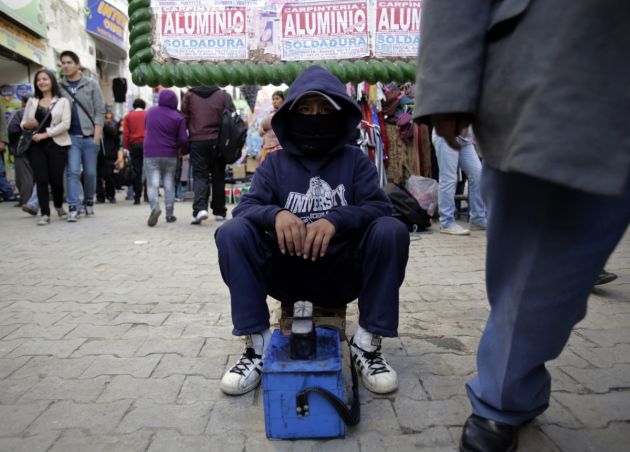In bid to eradicate poverty, Bolivia allowing child labor, draws flak

With a recent bill on child labor, a child in Bolivia can start working at the age of 10, and it has come in for criticism from human rights groups and trade unions.
The new measure created a stir as the country's congress passed a measure allowing children as young as 10 years old to earn a living for their families.
There are an estimated 33,000 child and adolescent workers in Bolivia's Cochabamba city, roughly 70 per cent of whom are girls and young women, the Christian-backed Tearfund aid agency reports on its website.
"Domestic violence in these urbanized areas is a tragically common factor that forces girls to leave their homes for a life on the streets," Tearfund said.
The minimum age for child workers was previously 14.
But the new bill provides flexibility as it permits children to start "working for others from age 12, which is allowed by international conventions, and self-employment from age 10," said Senator Adolfo Mendoza, co-sponsor of the bill, Agence France-Presse reported July 4.
The senator pointed that there are factors to consider before allowing the child of 10 to work.
The child should volunteer to work, there must be parental or guardian consent, and permission should be given by the public ombudsman.
"The request is then filed with the Labor Ministry," Mendoza said.
With this change is the hope of lawmakers to eradicate extreme poverty in Bolivia by the year 2025. "So our goal is to eliminate child labor by 2020. While it is ambitious, it is possible," he told AFP.
But the measure has been rejected early on by human rights activists. Human Rights Watch says in statement, "The Bolivian government should invest in policies and programs to end child labor, not support it."
Early this year, Human Rights Watch joined the Global March against Child Labor and Anti-Slavery International in sending a letter to President Evo Morales opposing the bill on lowering the age limit to 10.
"The letter stated that such a move would contravene Bolivia's international legal commitments and be counterproductive to the Bolivian economy."
According to Jo Becker, children's-rights advocacy director at Human Rights Watch, "Child labor perpetuates the cycle of poverty."
She noted, "Poor families often send their children to work out of desperation, but these children miss out on schooling and are more likely to end up in a lifetime of low-wage work." She added, "The Bolivian government should invest in policies and programs to end child labor, not support it."
The bill has been sent to Bolivian President Morales and is expected to be signed into law.